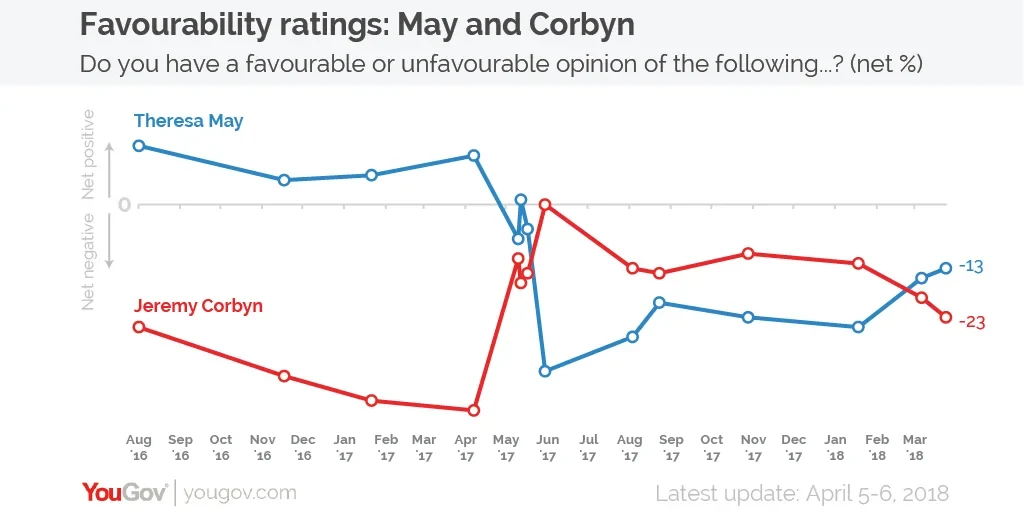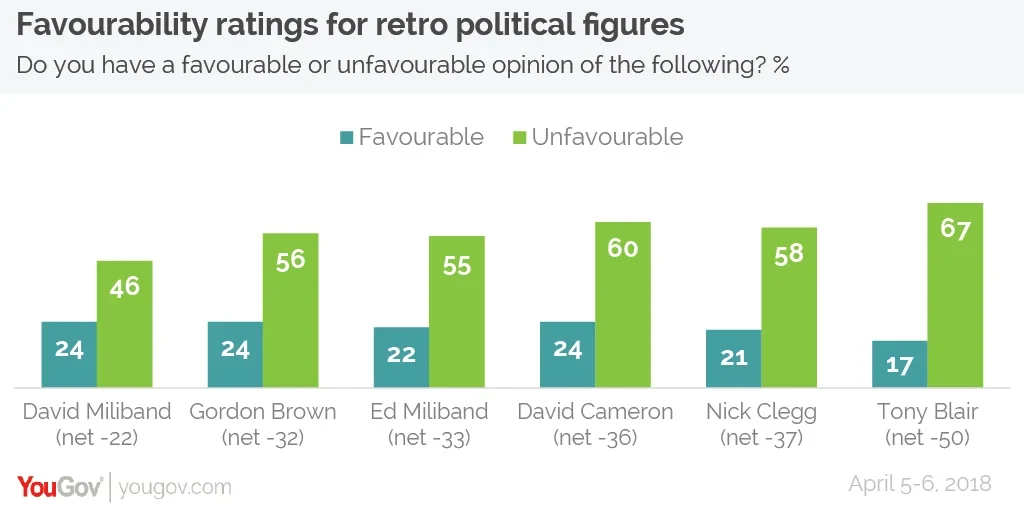The Prime Minister now holds a 10 point net favourability lead over the opposition leader
The Salisbury poisoning and Labour’s anti-Semitism row may have harmed Jeremy Corbyn’s popularity among the British public, with new YouGov favourability data revealing the Prime Minister is now seen more favourably than the Leader of the Opposition for the first time since the general election.
At the end of January Corbyn was still comfortably ahead of May, with a net favourability rating of -12 versus the Prime Minister’s -25, scores which had been fairly consistent since August 2017. However, by mid-March the Prime Minister had essentially drawn level (on -15 to Corbyn’s -19), and now Theresa May leads her rival by -13 to -23.

Recent events, and the handling of them, have panned out to May's advantage and Corbyn's disadvantage. The poisoning of Sergei and Yulia Skripal in Salisbury in early March afforded Theresa May a chance to look prime ministerial, with 53% of Brits saying they thought she had handled the crisis well. Corbyn, by contrast, was only seen by 18% as having responded to the crisis well.
Likewise, only 15% of Brits feel that Corbyn has handled the recent anti-Semitism row in the Labour party well, compared to 46% who believe he has handled it badly.
Favourability of attitudes towards the Labour party itself have followed a similar trajectory to views of Jeremy Corbyn over the same time period, with Labour’s net favourability score down from -8 in January to -17 now.
Blasts from the past
With Westminster indulging in speculation about David Miliband’s prospects as leader of a theoretical new centre party last week, YouGov took the opportunity to test the favourability of some of the last generation of famous political figures.
Tony Blair remains deeply unpopular, with 67% of Britons having an unfavourable view of the former Prime Minister (and a net favourability score of -50). His successor Gordon Brown holds a net favourability score of -32 (including -6 among 2017 Labour voters).

David Cameron has a net favourability score of -36 (including -7 among 2017 Conservative voters), while his former deputy Nick Clegg has a net score of -37 (although he still has the love of 2017 Lib Dem voters, with a net score of +25).
Of the two Miliband brothers, David is seen more favourably. David has a net favourability score of -22, compared to Ed’s -33. Both are divisive figures among 2017 Labour voters, with 37% having a favourable view of David and an identical 37% holding an unfavourable view; for Ed those figures are 40% and 41% respectively. You can read a more detailed examination of David Miliband’s favourability figures here.
Photo: PA









